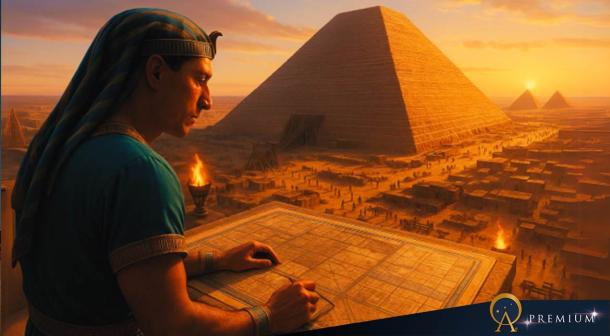🔴 Website 👉 https://u-s-news.com/
Telegram 👉 https://t.me/usnewscom_channel
Were the Egyptian pyramids truly just tombs built with eternity in mind? Or did they hold a far more practical meaning?
For centuries, we have been told that the monumental structures of the pharaohs served primarily as their eternal resting places. All other outcomes of their construction—such as the growth of the economy, infrastructure, or social cohesion—were treated as mere side effects of a grand endeavor.
But what if it was the other way around? What if the main purpose of these stone giants was not death, but life—with its everyday challenges and the pressing needs of society in the “here and now”?
A new theory, increasingly breaking through the rigid frameworks of traditional narratives, invites us to rethink the role of the pyramids in Egypt’s history.
Pyramids as a State Project – Economy and Stabilization
Depiction of laborers at work on pyramid construction
According to Jacek Krzysztoń, an economist and entrepreneur, the pyramids may have been more than tombs. Not mystical constructions or alien works, but practical tools of power, a way to manage the state and its economy.
“The Great Pyramids of Egypt, though traditionally described as tombs, may have served as instruments in the hands of the pharaohs, stimulating economic development and easing tensions between Upper and Lower Egypt after unification.”
